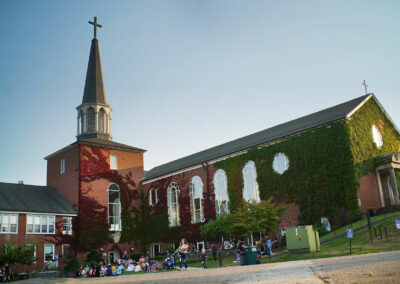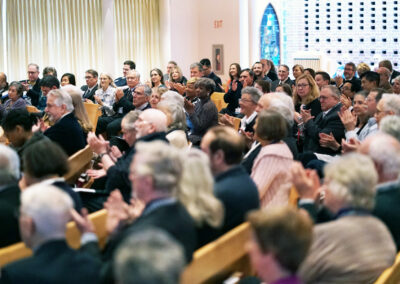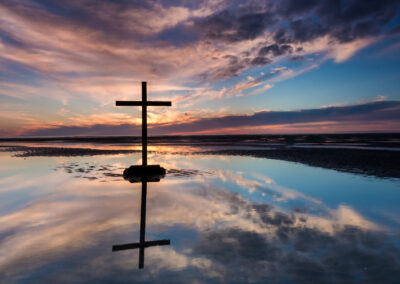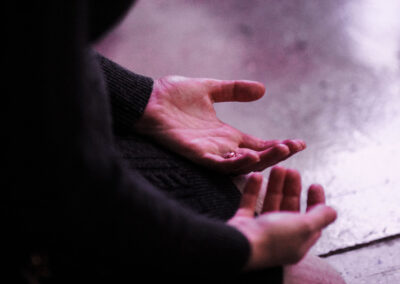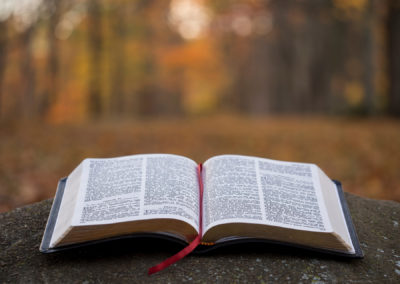Blog
Attentiveness
A weekly blog by President Scott W. Sunquist.

Attentiveness: Earthquake and Eclipse
Jean Ford was one of the most kind, soft-spoken, and deeply Christian people my wife, Nancy, and I have ever known.
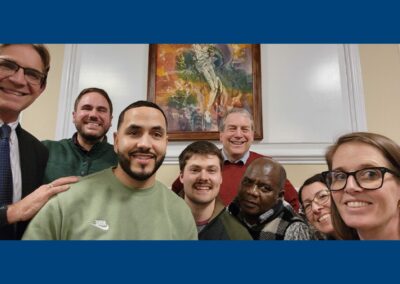
Attentiveness: Spirituality for Mission
Jean Ford was one of the most kind, soft-spoken, and deeply Christian people my wife, Nancy, and I have ever known.
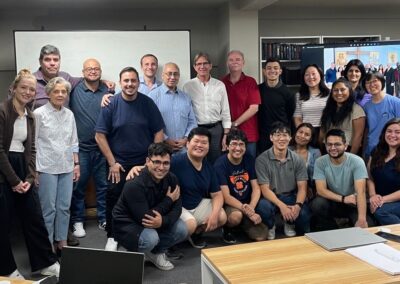
Attentiveness: Revelation 7:9
Jean Ford was one of the most kind, soft-spoken, and deeply Christian people my wife, Nancy, and I have ever known.
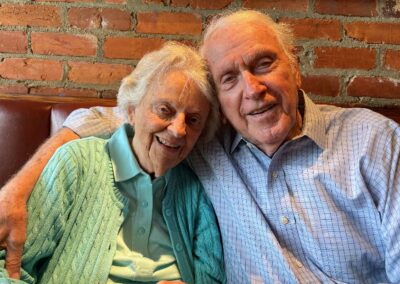
Attentiveness: Remembering Jean (Graham) Ford
Jean Ford was one of the most kind, soft-spoken, and deeply Christian people my wife, Nancy, and I have ever known.
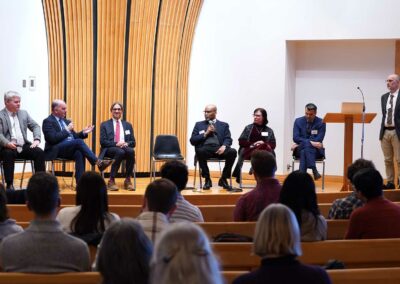
Attentiveness: Unity, Again
“But don’t you think our divisions—Christian divisions, not just among Evangelicals—is our greatest problem?”
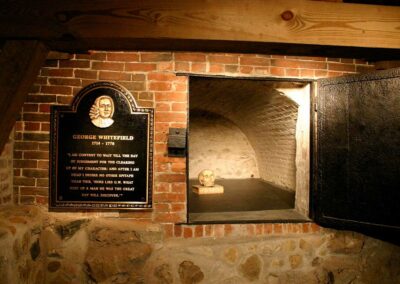
Attentiveness: Evangelicalism–Ad Fontes!
Entropy can set in so easily. In fact, it is the standard trajectory of all of creation. Things go from a place of higher energy to lower. Buildings decay, batteries wear down, and even my body seems to be wearing down.

Attentiveness: Bad News/Good News
Like many people, I have recently been thinking about the past year and what I want to do differently or start doing. For the first time in decades, I want to commit to bringing about social change through the church.

Attentiveness: Literacy
Like many people, I have recently been thinking about the past year and what I want to do differently or start doing. For the first time in decades, I want to commit to bringing about social change through the church.

Attentiveness: Holy Compromise and Community
Holy compromise in this world is necessary for human thriving.It is likewise true for us to thrive as a faith community.
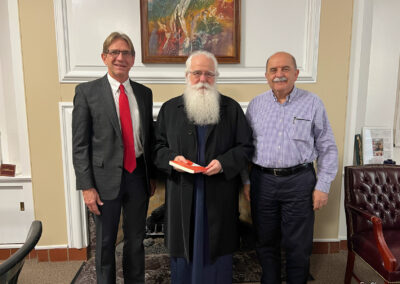
John 17: Evangelism and Credible Witness
I would like to suggest that the decline of Christianity in the West and the divisive global culture we currently contend with call for us to lean into the profound unity we have in Jesus Christ and to embrace healthy Christian diversity.

Attentiveness: Hospitality and Covenant
American Thanksgiving is unique. Most countries celebrate political liberation or independence and various holidays of a religious nature (such as Thaipusam, Deepavali, Vesak/Wesak Day, Yom Kippur, and Eid al-Fitr). American Thanksgiving, however, is rooted in national identity, Christian history, and intercultural encounters and covenant.
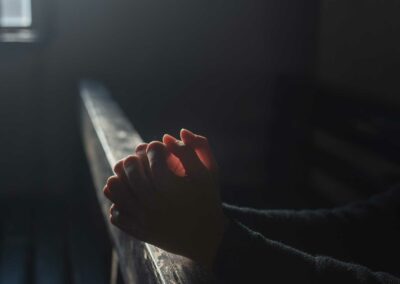
Attentiveness: Spiritual Warfare
In recent years, with increasing spiritual responsibilities, I have realized the need for leaders to be attentive.

Attentiveness: No Statement
This scenario [in John 11:32-33], I believe, captures the heart of our Lord in the midst of the current tragic, chaotic, and violent situation in the Middle East.
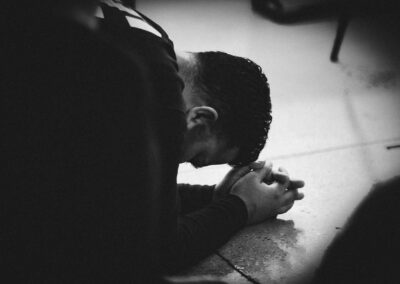
Attentiveness: Lament and Prayer
Recent events in Israel and Palestine have seized our attention in the past week.

Attentiveness: Deliverance
“President Sunquist, we really have learned so much at Gordon-Conwell, but we all have a question.”

Attentiveness: Migration
Arriving at a small town in New Hampshire for a presbytery meeting, I did not expect to be greeted by twenty or thirty brightly dressed Indonesians.
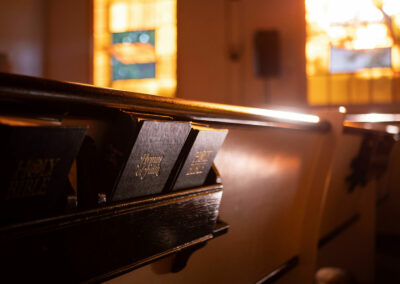
Attentiveness: Church
As we start a new academic year at the seminary, we are quite aware that many people today are developing (or have developed) a negative image of the local church.
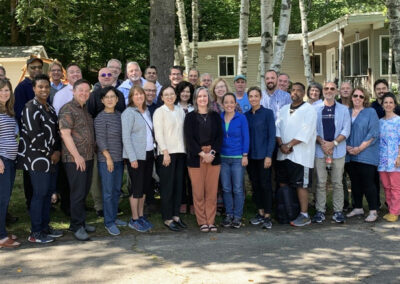
Attentiveness: A Seminary
A seminary is its faculty. The curriculum is secondary because if the wrong person is teaching, say spirituality or introduction to the New Testament, it can be a disaster for the class, and therefore, for the church.
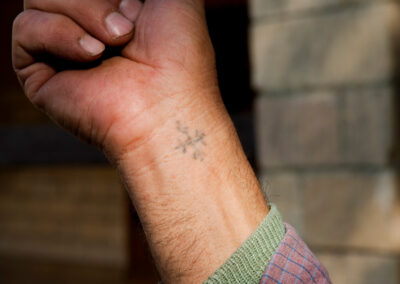
Attentiveness: Tattoo
To turn the tattoo image around, God’s love for us is marked, if you will, on God. He does not forget us in our woundedness, our pride, or our loss. God’s memory of us is flushed with love, compassion, and healing, for he has suffered for and he suffers with us.

Attentiveness: Fully Present
. . . watching, listening, smelling, feeling, and praying and then listening more for God’s kind whisper—these moments enable me to intimately commune with God.
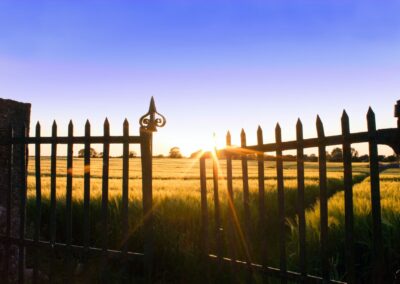
Attentiveness: Grace and Holiness
Life is only found through the door of grace striving toward holiness.

Attentiveness: Sears and Starbucks
When I was in high school, I remember my mom picking up a reproduction of one of the first Sears and Roebuck catalogs.

Attentiveness: Grace
In an 1891 sermon (now simply numbered “2221”) the great English preacher Charles Spurgeon introduced his topic by saying, “. . . So all is of grace from first to last, and must never be viewed with a legal eye.”

Attentiveness: Leadership
There is much to be learned about leadership in difficult times from Scripture, especially the history books of the Old Testament.

Attentiveness: Wind
We participate in God’s glorious work in history by preparing for the wind of his Spirit and for his glory to be revealed.
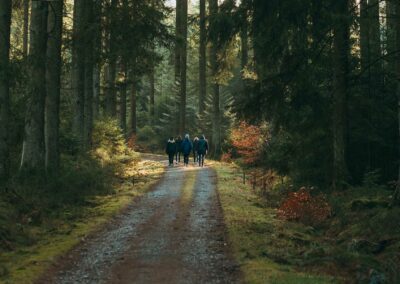
Attentiveness: An Appeal for Christian Unity
Gordon-Conwell’s history is one of rich evangelical ecumenism. There are eighty-five evangelical and orthodox denominations represented in our community, and we are united by the authority of Scripture.

Attentiveness: Essential Changes
When is a “pivot” more than a pivot? When it is about more than money and property.
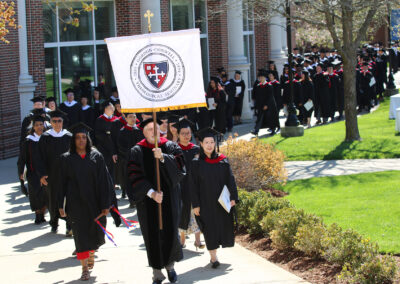
Attentiveness: Commencement
Life is often confusing, difficult, and seemingly meaningless. But every once in a while, we are forced to pause and lift our heads above the fray. As if invited to see with the Father’s eyes, it then becomes clear that life is actually meaningful, beautiful, and joyful.
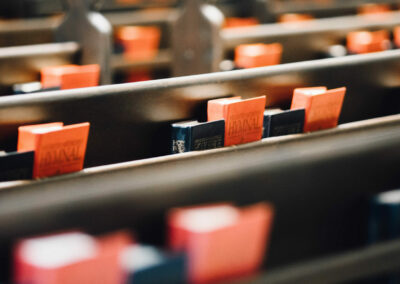
Attentiveness: Engaged Evangelicalism
This past Sunday my wife Nancy and I sat at a table at the William Penn Hotel in Pittsburgh with former Gordon-Conwell Board chair Rev. Dr. John Huffman and his wife Anne.
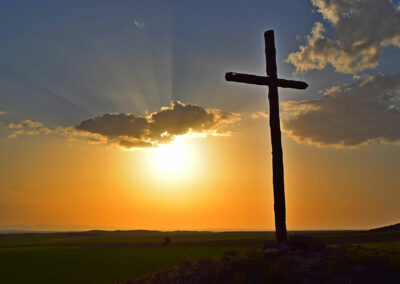
Attentiveness: Life Eternal
In 1998 our family experienced a family tragedy during a family reunion. Nineteen of us started the reunion-vacation but only seventeen returned home.
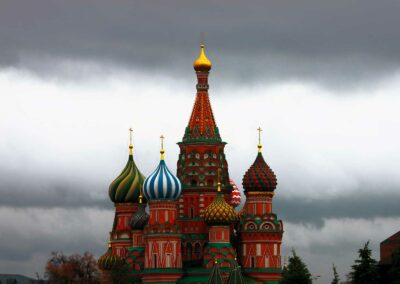
Attentiveness: A Nation’s Soul
Some of the most profound and transformative Christian Spirituality of the modern period came out of Russia in the 19th century.
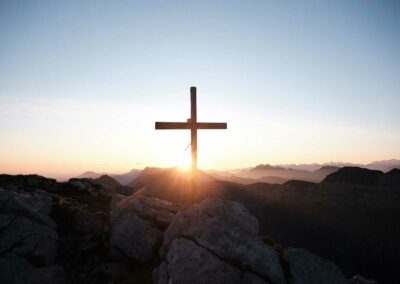
Attentiveness: Our Stance
Basketball has been an important part of my life from the time I could dribble a ball.
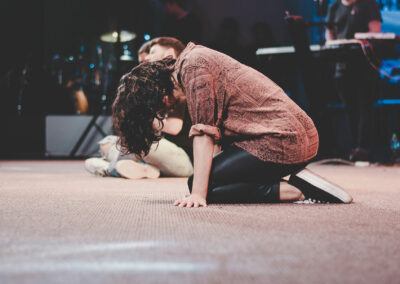
Attentiveness: Asbury and Awakening
What is happening at Asbury University in Wilmore, Kentucky has grabbed the attention of Christians around the world, and of social media and the even the secular press.

Attentiveness: Zakar–Remembrance and Black History
One of the most important verbs or, more specifically commands, in the Old Testament is the imperative to remember. “Remember the seventh day to keep it holy . . . Remember that you were strangers in Egypt.” Remember . . .
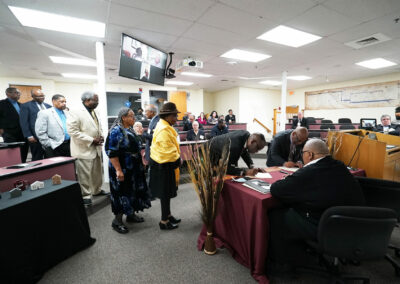
Attentiveness: Covenant
“President Sunquist, are you willing to make a covenant with Black church leaders of Boston?” Not spoken so much as a challenge than an offer and a blessing, Rev. Dana Gonsal’s question sent my soul spinning. A covenant?

Attentiveness: Reconciliation, Prayer, and Fasting
Reconciliation is at the core of the gospel. God reconciled humanity to himself through the cross. Our own reconciliation with one another then comes as a miraculous extension of reconciliation with God.
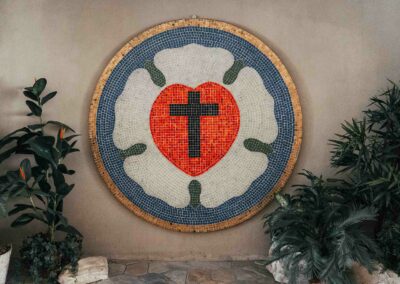
Attentiveness: Translation and “Evangelical”
Are we—Gordon-Conwell—“evangelical?” This question has been asked of me more frequently in the past few years. I guess the answer is: It depends . . .
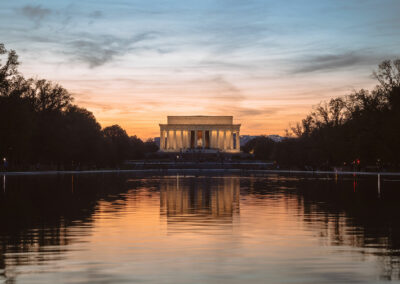
Attentiveness: Lincoln and King
This time of year, in the shadow of Martin Luther King Jr. Day and looking toward Black History Month, is a good time to consider the impact of Christianity and the Bible on our nation.

Attentiveness: Tell
While attending the American Society of Church History’s annual meeting last Sunday, I ran into a friend from 20 years ago with whom I had lost contact for a number of years.

Attentiveness: Pivot Ponderings
Gordon-Conwell has always been a mix of Bible, mission, and creativity. We have been strong on the authority of Scripture, attentive to local and cross-cultural contexts, and ever creative in finding new ways to fulfill our part of God’s mission.
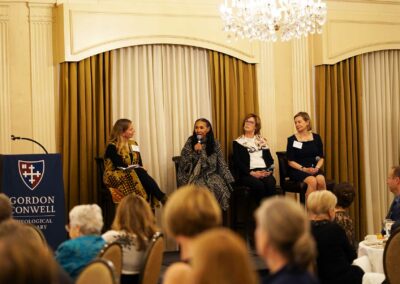
Attentiveness: Missional Existence
We want to make sure our students are taught that one of the most important ministries they will have will be to equip parishioners—teachers, business people, artists, sales persons, or scientists—to be witnesses in how they live, work, and speak in their jobs.
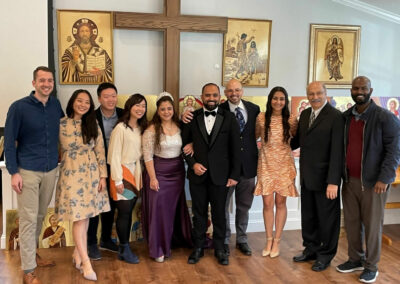
Attentiveness: Many Languages
Christian Weddings and wedding banquets are unique opportunities to see into a person’s life and learn more about their spiritual formation.
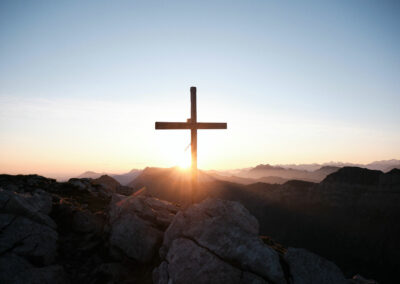
Attentiveness: Universal and Particular
The particularity of Jesus as the only Savior and Lord is a scandal for many. There are so many religions, how can only one be correct?
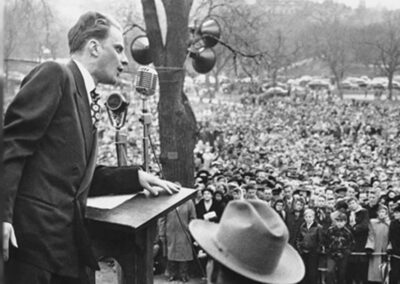
Attentiveness: New England
As Billy Graham told the story at Gordon-Conwell’s 25th anniversary commencement, Harold Ockenga asked him in the late 60s where they would locate the united seminary: Philadelphia or Boston?
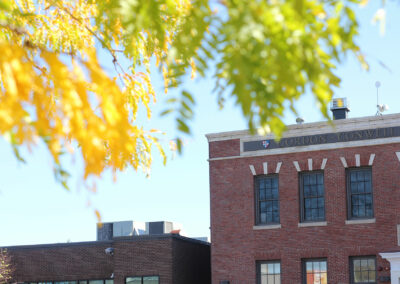
Attentiveness: Conwell and CUME
From the extensive experience of many cities came the new work of providing contextualized theological education in urban Boston to Christians of diverse cultural and racial backgrounds.
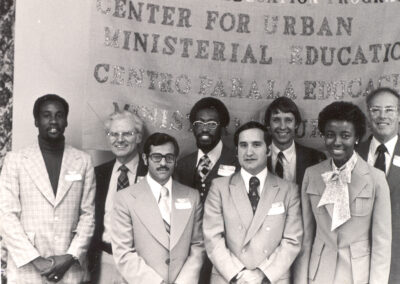
Attentiveness: TEE and CUME
I am a historian. While studying the history of our Boston urban program (the Campus for Urban Ministerial Education, known as CUME) a few weeks ago, I was reminded of a conversation I had this past summer with Dr. Eldin Villafañe, the first CUME director.
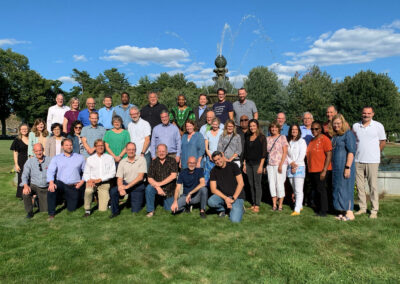
Attentiveness: Face to Face
Last week our full-time faculty and another nine adjunct professors were together for about 31 hours. We sat around tables and looked at each other face-to-face.
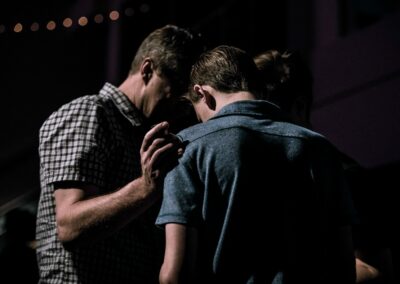
Attentiveness: The Pastor
My first funeral as a young pastor was the suicide of an 18-year-old woman. My second funeral was a young father of two who was a key Christian leader and an elder in a church. He died of HIV/AIDS.

Attentiveness: Content, Context, Culture
I have been quoted as saying that the curriculum of a seminary doesn’t matter as much as the faculty who are teaching the courses.

Attentiveness: Constant Rhythms and New Beginnings
We have twelve grandchildren, eleven of whom will be starting back to school in the coming weeks.
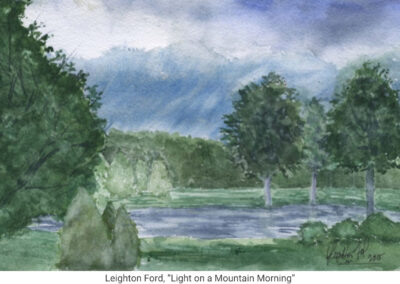
Attentiveness: Theology and the Arts
The arts, such as a beautiful painting or thoughtful poem, can direct our thoughts and meditations toward the ineffable beauty, power, and love of God, our wise Creator and loving Savior.

Attentiveness: Won’t You Be My Neighbor?
When our children were growing up, they were more “Mr. Rogers kids” than they were “Sesame Street kids.”

Attentiveness: Big Pivot–Fast and Slow
Some things happen fast like lightning. Some things happen slowly, lugubriously, haltingly, languidly . . .

Attentiveness: It is Only Things
I made a table. I was only about 24 years old and knew very little about woodworking, but I wanted to learn more, and a table seemed like a good thing to make for a growing family.
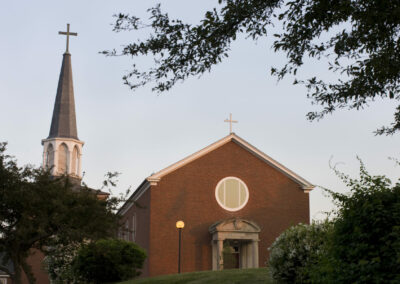
Attentiveness: Lament and Thanksgiving in the Pivot
The Gordon-Conwell community is experiencing a liminal time–that in-between time filled with feelings of both loss and yet-undefined hope; of death and the joy of new possibilities.

Attentiveness: Partnership in the Pivot
The Big Pivot which we are entering into has come about through collaboration in research, strategy, and planning.
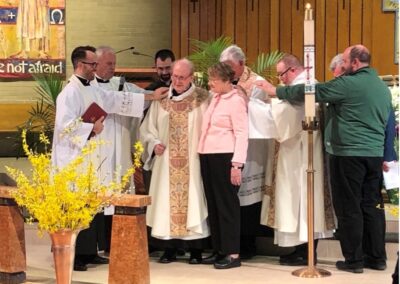
Attentiveness: Honoring Faithfulness
This past Sunday Fr. Ray Pendleton celebrated the Eucharist for the last time at the age of 90 (plus one day!).

Attentiveness: Life After Death
“The body goes in the ground and the mind goes to sleep.” This was apparently the answer, learned by rote, that my Chinese communist students gave to the simple question, “What happens after death?”

Attentiveness: Ukraine
Dr. Don Fairbairns sheds light on the history and religious nationalism that led to Putin's invasion of Ukraine.

Attentiveness: History and Black History
History is very important. History creates identity. We are what we remember (or what we have been told) about our history.

Attentiveness: Vision
Years ago, we sent some seminary students to Vietnam to teach Buddhist converts about the Bible. These new Christians were hungry to understand their new life in Christ.

Attentiveness: Outstanding
More than any time in recent memory in the United States, this is a time when Christians should stand out.

Attentiveness: The Story
History is above all else a story. Some histories are more true, or more accurately told, than other histories.

Attentiveness: Repetition
The repetition of the Advent and Incarnation story bears repeating over, and over again. We need to hear it over, and over again. We need to look at it from the many different angles in Scripture.

Attentiveness: Gratitude
Forty-nine and a half years of friendship is something to be thankful for. Nancy and I were caught up in some reflection and thanksgiving the past week through a couple of encounters.

Attentiveness: The Saints
The strength of a church and even the wholesomeness of Christianity is its connectiveness and contextuality: connected to Jesus and our great Christian tradition and presenting the Gospel in contextually appropriate ways.

Attentiveness: Clarity and Grace
We encourage students to become very involved in a local church while in seminary, not only when they are doing their practicum (field education).

Attentiveness: Twenty-Five Years
Twenty-five years is a reason to celebrate a marriage or a birthday. It is also a great occasion to celebrate a length of time in the same ministry.

Attentiveness: Open Secret
This past Sunday, Nancy and I (and another 250 or so others) heard a clear and inviting evangelistic sermon preached by a Gordon-Conwell alumnus at the main entrance to a very large local autumn fair. It was a beautiful public proclamation of the gospel.
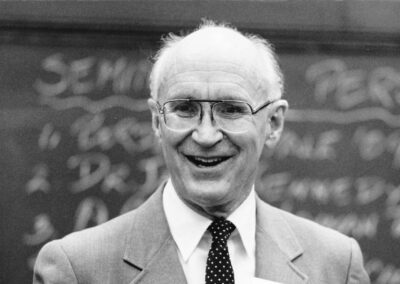
Attentiveness: J Christy Wilson
There is a straight line from the missions revival in the late 19th century in the United States to our mission emphasis at Gordon-Conwell today: this line goes through J Christy Wilson.

Attentiveness: St. Michael and Missions
This is Global Missions Week at Gordon-Conwell, when we take time to focus on God’s mission to the whole world.

Attentiveness: Uber
Lyft was going to charge $116 for a ride from Logan International Airport to our home in Beverly.
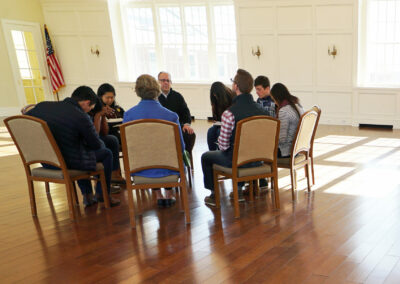
Attentiveness: Wisdom
Gordon-Conwell Theological Seminary: where scholars are disciples and disciples are scholars. It is an aspiration that I hope can be an inspiration for Gordon-Conwell faculty and students.
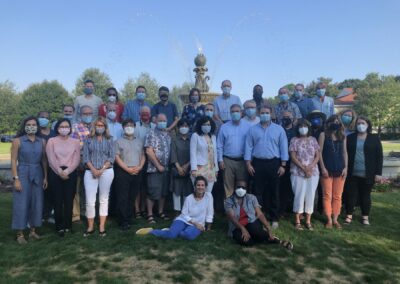
Attentiveness: Faculty Retreat
Gordon-Conwell seeks to maintain high academic standards and deep spirituality. Together. Both/And. Interwoven. Double helix. Warp and woof.
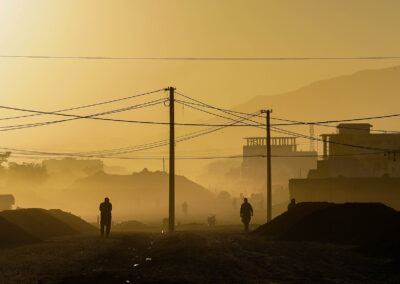
Attentiveness: Afghanistan, “How Long, O LORD?”
Dr. J Christy Wilson Jr. had a long and deep connection to Afghanistan before, during, and after he taught at Gordon-Conwell and retired in 1998. He was known for his unique narrative about Afghanistan and the resistance to the Gospel there being linked to its fate as a nation.

Attentiveness: Andrew Walls (1928-2021)
Every once in a while a person passes on who has personally influenced so many people that the accolades continue to come from surprising corners of the world.

Attentiveness: Foundation
The recent collapse of the condominium building in Surfside, Florida was a dramatic reminder that all great buildings, all great institutions, all great families, are built on strong foundations.
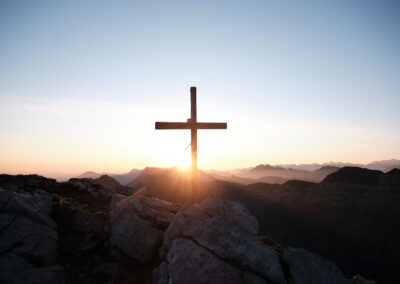
Attentiveness: Both/And, Part 2
Zoroastrianism best describes the spirit of our age. It is a cosmic vision of creation where all is created by one of two gods: EITHER by the evil god Ahriman, OR by the good god Ahura Mazda. All of the world, and every part of creation is either good or evil.

Attentiveness: Church
I believe North Americans think far too little of the church, and of their own local church.

Attentiveness: Memories and Ministry
In ministry we are called to be faithful servants who seldom see the results of our sacrifices.

Attentiveness: Freedom!
Freedom is not “independence,” but they are related. This past week we celebrated our nation’s independence (or at least the declaration of it) from an empire: Great Britain.
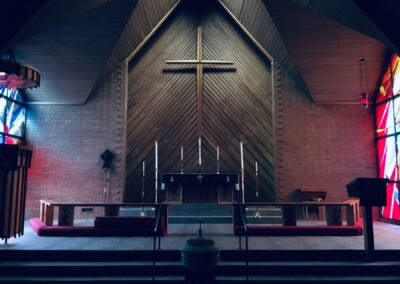
Attentiveness: Finishing Well, Part II
"Our calling is to be faithful in a church, seminary, mission, or other position knowing that we are not the savior or the lord of the institution."'

Attentiveness: History is Very Important
“The fourth and fifth centuries were the greatest period of theological writing in Christian history—even more so than the time of the Reformation.”
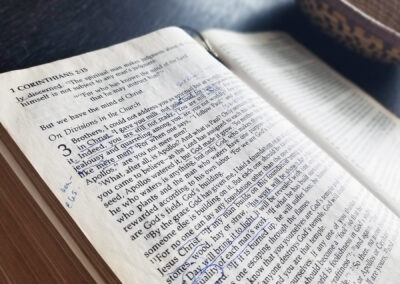
Attentiveness: Division and Proclamation
In the early months of 1970, my local Presbyterian Church went through a terrible split. About half of the congregation voted to remove the senior pastor.

Attentiveness: Creation
For eight days in a row in late May, I walked 7 blocks east (stopping for a dark roast coffee) to the beach. I left about 5:30 am with a beach chair, Bible, and the Philokalia.

Attentiveness: Baptism
This past Sunday one of our grandchildren was baptized. Nancy (my wife) was raised Baptist, so this was a baptism in her tradition: believer’s baptism.
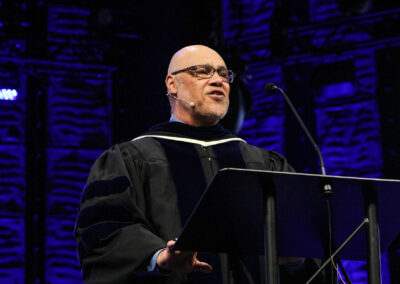
Attentiveness: Finishing Well
Last week we celebrated, laughed (I mean really, deep and full-bodied Rodney Cooper laughs), cried and prayed. It was a night of Carolina barbecue and sharing stories honoring one of the great retiring faculty of Gordon-Conwell, Dr. Rodney Cooper.
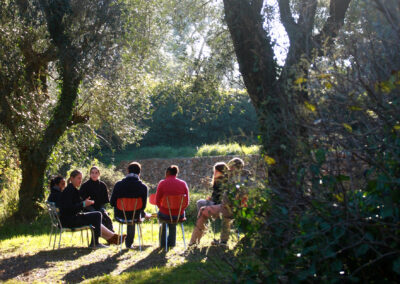
Redemption and Justice
All ages have their divisions and contentious issues. However, our present age seems to be especially divisive and contentious. Let’s be clear about our age: we are still dealing with sin and its evil fruits.
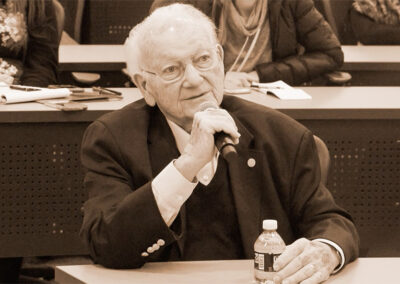
Attentiveness: Robert E. Cooley (1930-2021)
More than any other single individual, Bob Cooley shaped one of the most influential and important seminaries in North America. It is unlikely he will ever be dethroned from that position as architect of Gordon-Conwell Theological Seminary.

Attentiveness: Multicultural World
Two weeks ago, a major affirmation was made by the Gordon-Conwell faculty in approving a “Diversity Policy” (above). What does this mean? It is a significant cultural shift.
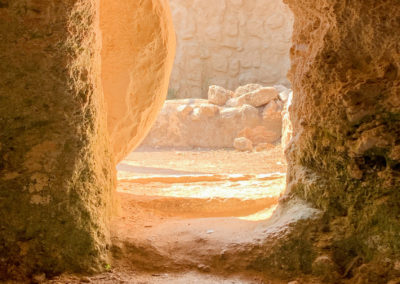
Attentiveness: Center of All History
When in my Ph.D. program in graduate school, I was one of the few Evangelicals in a more mainline and pluralistic setting.
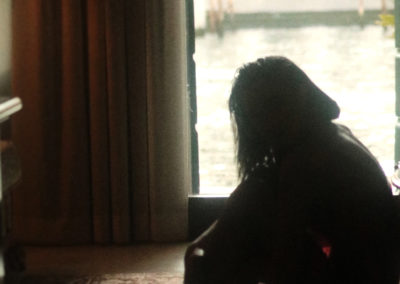
Attentiveness: Racial Violence and the Prince of Peace
“Why do so many people in America have guns?” A number of times Singaporean friends asked me this question, and I must admit I did not have a good answer.

Attentiveness: Migration/Immigration
For Christians the whole concept of migration and “home” is very important.

Attentiveness: Seminary as Formation
I usually don’t do book reviews. However, this book is important for a blog that is located on a seminary website.

Attentiveness: Looking to Jesus
An individual, a local congregation, The Church, and even a seminary should keep both eyes focused on Jesus.

Attentiveness: Us
When Christians have disagreements it should be, “We are having a disagreement within the family,” and not be framed as an “us versus them.”

Attentiveness: Both/And
“Is Gordon-Conwell changing? Are you trying to change Gordon-Conwell?” Well, yes, but it may not be what you think.
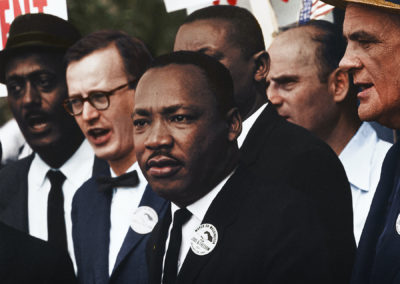
Attentiveness: Remembering and MLK
God is a jealous God. Jesus is a solitary Savior of the World. All peoples, all nations, all languages will bow down to Jesus, the Lamb.

Attentiveness: Attentiveness in Three Directions
The title of this blog is attentiveness. Being attentive includes attending to one’s own soul, to the Spirit of the living God, and to those around us. Yesterday, these three came together for me.
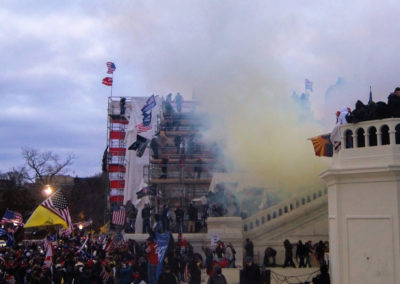
Attentiveness: Epiphany and Infamy Part I
January 6th was Epiphany, and this year it was also called as a day that will live in infamy.
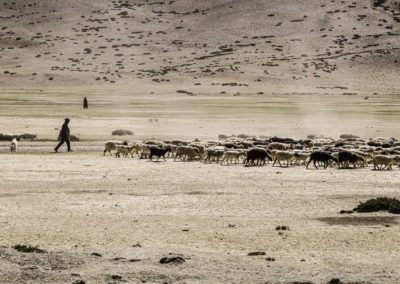
Attentiveness: Magnificat Shaped Evangelicalism
This Christmas I am meditating on the Christmas story as a way of rectifying Evangelicalism.

Attentiveness: Whatever is True….
I decided not to do a blog post starting like this:“Well, this has been a very difficult year….” Or like this:“I am sure many of us can’t wait for this pandemic and election to be over….” However, I believe Scripture directs us differently.

Attentiveness: Incarnation and Intercultural
In the month of November, I took the “Matthew Challenge.” No social media. 30 minutes of prayer every day (almost). Three chapters of Gospel reading, daily. It has been life giving and re-orienting. I have never read so much of the Gospels in a month.

Attentiveness: Thanksgiving
Thanksgiving, I mean thankfulness that is genuine, overflows into love for others.

Attentiveness: Social Conscience
“A sense of social responsibility, buried too long, perhaps under the wrong kind of conservative instincts, is rising to the surface, and demanding a place in the sun.”

Attentiveness: Jesus is Still on the Throne
At times it seems like the pandemic will never end. At times it seems like the election animosities will never end. At times it seems like the Church will never be united.

Attentiveness: Center is Re-Centered
In ancient times the high places were places of worship, devotion, and often of idolatry. They got Israel in a lot of trouble. I have been told that Gordon-Conwell is on the highest point on Cape Ann. Such a point of elevation may have some positive symbolic value. I believe it does.

Attentiveness: Life’s Rhythms and Race
Character can not be formed without developing rhythms of life. Patterns for living make it possible to develop virtues.

Attentiveness: Steps Toward Culture Change
How does a seminary with a tradition going back over 130 years change its culture and ethos? Here is a good place to start.

Attentiveness: Sabbath
In my first year at Gordon-Conwell, we had just moved from Virginia with a 2 month old and a 2 year old.

Attentiveness: Working Past Division
Last week I posted a blog that caused much distress. After helpful meetings with students, and concerns expressed from faculty, I could see the error I made: presenting an offensively romantic view of slavery from my position as an academic who can be too detached from conversations, relationships, and the feelings of many who live with the pain of racism.
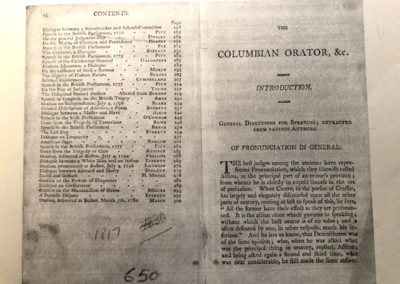
Frederick Douglass: Thirst for Knowledge
Born Frederick Augustus Washington Bailey, the great escaped slave and vocal leader of emancipation later took the name Douglass, with a double “s.”
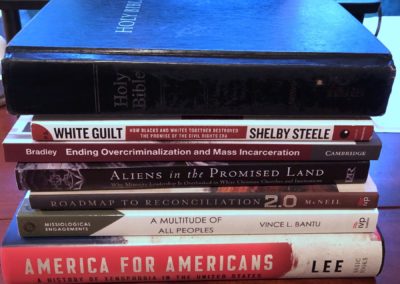
GCTS: Race, Class and Ethnicity
How can we build signposts of the Kingdom in a world that seems increasingly divided and deaf to the cries of the poor, oppressed and unjustly treated?

Attentiveness: Gird Up Your Minds
At a time of pandemic and poverty, racism and rioting, and seemingly irreversible global damage, who has time for theological education?

Attentiveness: Time, Race and the “Common Father of Souls”
Today’s national conversations about racism and justice are in need of a robust Christian theology of creation and time. I’ve recently picked up work on a book I started 10 years ago. (Time flies and I write slowly.) The chapter I am working on is about time.

Attentiveness: Saints
Last week I called a retired missionary who has been protected/imprisoned in a senior housing facility since March.

Attentiveness: Pandemic Patience
Wise people noted at the beginning of this pandemic that it would not last forever, but it will last for a period of time. It seems to be lasting a very long time, and it seems to be dragging us down: psychologically, socially, economically and educationally. Spiritually, many are depressed.

Attentiveness: Racism and Evangelism
Last week I participated in a Veritas Forum gathering on intellectual humility. It was just me and about 500 others on Zoom listening to science professors from MIT and Dartmouth. I was out of my league.
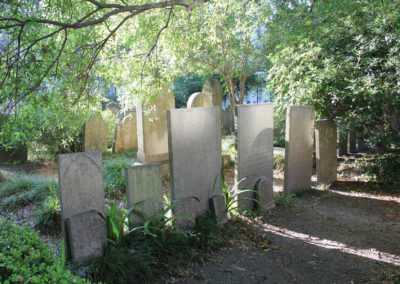
Attentiveness: Cemeteries
Every day I leave my home I pass a cemetery. This past Wednesday, more than other days, I paused to read some tombstones and reflect on life and death. The ancient Christians had it right. They said it is healthy every day to reflect on your death, if you would live a Christian life. In our contemporary self-absorbed world, such a saying seems ridiculous.

Attentiveness: Belonging
Am I really “attending” worship, or only watching worship on Facebook Live? Has Christianity moved from a full-contact sport to a spectator sport?
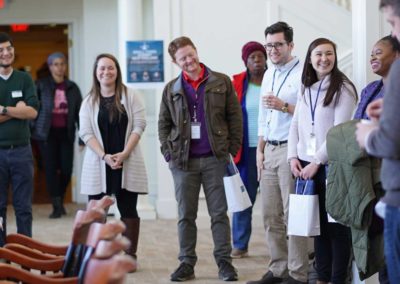
Attentiveness: Seminary 2.0 – Conclusion, Part 6
There is an old cliché that says doing the same thing over and over again and expecting different results is the definition of insanity. It may be overused but it seems appropriate when talking about theological education.

Attentiveness: Seminary 2.0 – Christ-likeness & Culture, Part 5
“It is a battle.” This was a strange answer to a question about spiritual formation. I asked Dr. Richard Ray (Presbyterian leader in publishing, pastoring, teaching and college administration) a very important question.
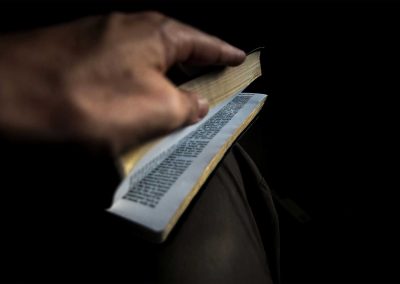
Attentiveness: Seminary 2.0 – Cultural Imperialism, Part 4
Context is not everything, but it is a lot. The incarnation reveals to us that when “the Word became flesh,” it took on a particular culture, not a universal culture.
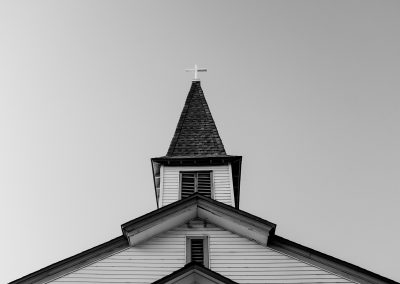
Attentiveness: Context and Strategy, Part 3
Protests over racism. Pandemic. Strategic planning. What does it mean to begin a strategic planning process at a time of social upheaval?

Attentiveness: Racism and Trinity Sunday
Racism is sin. Like all forms of sin, racism can destroy. And like all forms of sin, it will be with us until Jesus returns.

Attentiveness: George Floyd
For a second time in a month a series of posts on theological education is disrupted by national events. As we write this post, rioting and looting continue to spread across the United States, and U.S. Embassies in Africa are having to respond to criticisms and accusations about U.S. injustices.
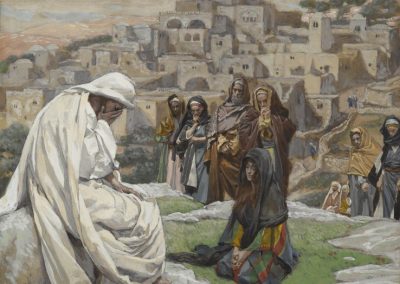
Attentiveness: Seminary 2.0–What We Forgot, Part 2
Please don’t listen to the futurists who proclaim: “Everything is disrupted, and seminaries must be completely changed!” Yes, theological education must be transformed, but it will not be replaced by something totally different.

Attentiveness: #IRunWithAhmaud
25-year-old Ahmaud Arbery loved to run. Grief. Tears. Anger. Disbelief. Like many of us in the past weeks, I have stopped looking for pandemic articles in the news and have turned to the shocking news about Ahmaud Arbery’s last steps…and the public struggle to find justice in this situation.
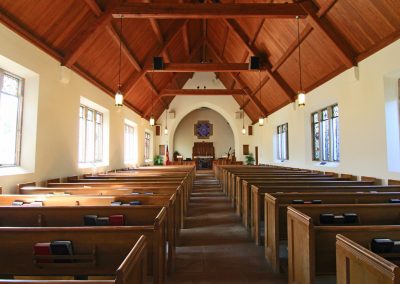
Attentiveness: Repent and Restart, Part I
All of higher education is in an upheaval at this time. All college and seminary presidents are asking questions like: “How are we going to make it financially?” “How can we do education without gathering together?” “What will the new ‘normal’ look like next year?”

Attentiveness: Pandemic and Moral Reasoning, Part II
In a pandemic, which moral foundations are most important to guide us as individuals and as a society? Read more on this week's President's blog.

Attentiveness: Pandemic and Moral Reasoning
Is there a “Christian moral response” to this pandemic? People are responding in many different ways to enforced isolation.
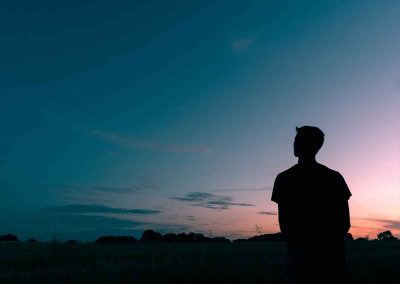
Attentiveness: Alone?
Jesus on the cross was all alone. No one could die for him. In fact, He died for others. Still, he was all alone.

Attentiveness: Faith & Science Amid the Pandemic
This current pandemic has created a dilemma of knowing: What do we really know? When will this be over? Who can we trust?
Attentiveness: Isolation
When a virus spreads by human contact, our health, and possibly life, is dependent upon our being alone.
Attentiveness: Pandemic
Pandemics have marked human history. The most recent global pandemic was the 1918–1919 Spanish flu epidemic, not SARS.
Attentiveness: Black History Month
History is very important. When history is forgotten or neglected, the loss is tragic, for we develop a false identity.
Attentiveness: MLK
I suggest we acknowledge our missed opportunity in 60s and 70s and start a new way forward, revisiting the discourse, the legislations and the sermons of the period.
GCTS Vision: Aspiration as Inspiration
An aspiration, at its best, should become an inspiration. I hope this aspiration will become an engaging inspiration in all that we do at Gordon-Conwell as we begin our second 50 years of service to the Church.
GCTS Vision: Discipleship
Love never fails. But love never stands alone, for God is love. This is why love never fails.
GCTS Vision: Global
Love never fails. But love never stands alone, for God is love. This is why love never fails.
GCTS Vision: Community
Love never fails. But love never stands alone, for God is love. This is why love never fails.
GCTS Vision: Christ-Centered
Love never fails. But love never stands alone, for God is love. This is why love never fails.
GCTS Vision: Loving
Love never fails. But love never stands alone, for God is love. This is why love never fails.
GCTS Vision: Thoughtful
The seminary buzzed last week with a two-day board meeting, the inauguration of a new seminary president and dinner for 400 celebrating our 50th anniversary.
Staff
The seminary buzzed last week with a two-day board meeting, the inauguration of a new seminary president and dinner for 400 celebrating our 50th anniversary.
50 Years or 135 Years?
Gordon-Conwell has deep roots. Although we are celebrating 50 years during this school year (beginning this week), the year 1969 is more of a date about a “restart” or “reboot” of the seminary.
Evangelicalism (Part 4/4)
1969 is not 2019. This year we are celebrating the 50th anniversary of the uniting of Gordon Divinity School with Temple’s School of Theology (Conwell)...
Michael E. Haynes
The Reverend Dr. Michael E. Haynes was a real Christian; so his good friend Louis Farrakhan of the Nation of Islam shared at Haynes' memorial service.
Evangelicalism (Part 3/4)
Evangelicalism, from the beginning, broke down walls (Ephesians 2:14).
Retreat
43 faculty from four campuses and three divisions went on a retreat. It was a spiritual retreat where we sat around tables of 5 or 6 faculty to worship, pray, share our journeys and break bread.
Evangelicalism (Part 2/4)
Words only have meaning in context. Words also miscommunicate because of one’s inattentiveness to context. What about the word ‘Evangelical’?
Evangelicalism (Part 1/4)
As Gordon-Conwell begins to celebrate its 50 years of training pastors, missionaries and counselors, I want to reflect back on our beginning as a strong outpost of evangelicalism in New England.
Languages
It would be easier, of course, if we just demanded everyone learn English well to study at Gordon-Conwell, but that would be perpetuating a colonial paradigm. That colonial paradigm was not Jesus’ model, and it did not work.
Anger
The church must not be simplistic and think that gun violence is a simple issue. It is very complex. However, what is not that complex is human sin. The church still has the answer to the degree that is truly the Body of Christ, forming people into His likeness.
Academics
If our future does not have a strong emphasis on knowing and living the Scriptural life, connection to and engagement in the global church, and all of this at the highest academic standards…well, it will not be Gordon-Conwell.
Value Added
Here is a good question to ask any local church: Does your presence add value to the neighborhood or the town? In other words, if your church were to close, would your neighbors even notice? Would it make any difference?
Evangelism
By the end of the evening, 1,011 new believers were identified ... Dr. Park’s story illustrated two important points: evangelism is not a major problem in non-white cultures in North America, and there is a quiet revival going on in Boston that white (English speaking) Christians know little about.
Adjunct
The professionalization of ministry and of seminary education needs to be re-thought.
Beginnings
“We want Gordon-Conwell to continue to be Gordon-Conwell, but with a renewed missional dimension. The trajectory is from the heart of God into the nations of the world.”
Symbols
Our faith today should also be encouraged by symbols, stories, signs, markers that bring us back to the foundational truth: God’s extravagant love…
Generations
A generation later and here is the daughter of one of my disciples.
Coast to Coast
I am convinced the single most indispensable skill of leadership is: attentiveness
Gordon-Conwell Blog
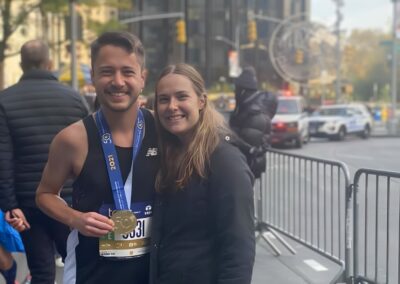
Christian Discipleship and the Marathon
Michael Caleb Harris When someone thinks about Gordon-Conwell Theological Seminary, myriad associations may come to mind. Being ...
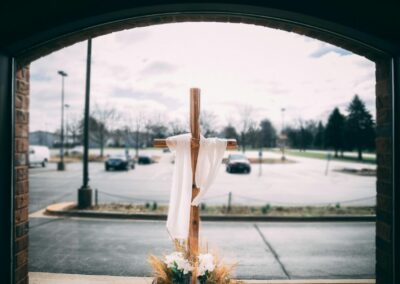
Astounding Claims and Reliable Proof
Dr. Jeffrey Arthurs When we say that “Jesus rose,” we mean more than “he rises in our hearts,” as when we remember personnel of ...
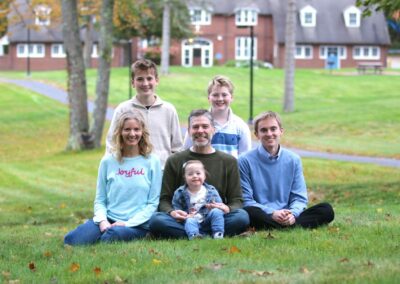
The Church Is a Place for Belonging
Dr. Patricia Batten March 21 is World Down Syndrome Day. This date has been purposefully designated to celebrate our loved ones ...
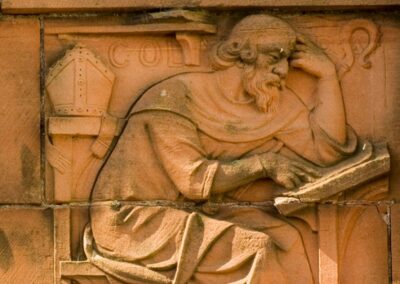
What is “The Columba Option,” and Who Was Saint Columba?
Wendy Murray In yesterday’s post, Dr. Currie made reference to the idea of Christians appropriating “The Columba Option,” ...
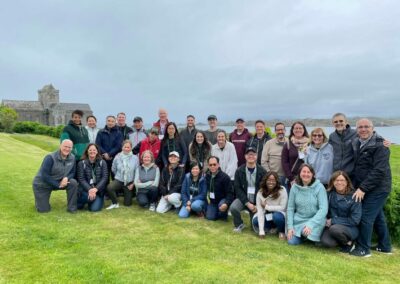
How The Celtic Church Saved the West
Dr. David Currie When you hear the term “Celtic,” what comes to mind? Boston’s basketball team? A Glasgow soccer team? Let’s ...
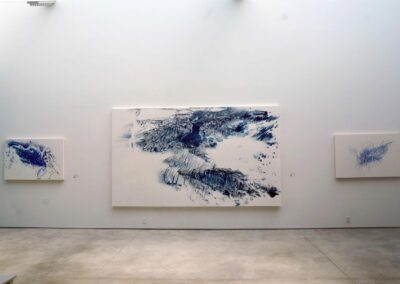
Why Should Christians Care About Abstract Art?
Image by Makoto Fujimura from the Walking on Water collection. Dr. Wes Vander Lugt Abstract art has always moved me, but until ...

In the Beginning, God…
Reflections on a Loving, Designing, Self-Disclosing Maker Dr. Dennis Hollinger The following brief excerpt from Dr. Dennis ...

Should Lent Matter?
Wendy Murray The significance of the season of Lent has at times confounded those outside Catholicism since (it is thought) ...

Black History Month ~ An Alumna’s Perspective: Growing in Grace and in “Race”
Michelle T. Sanchez (MDiv & ThM '09) Discipleship has long been my passion. By “discipleship,” I mean walking with ...
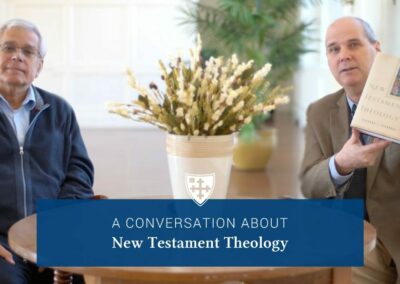
A Conversation about New Testament Theology with Dr. Schnabel and Dr. McDonough
Dr. Eckhard J. Schnabel, Mary French Rockefeller distinguished professor of New Testament, has recently published his New Testament ...
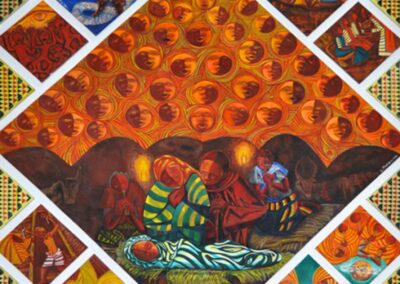
Above the Sheepfold
Dr. Gwenfair Walters Adams Above the fold: This is where the most important news commands the upper left corner of the front page of ...
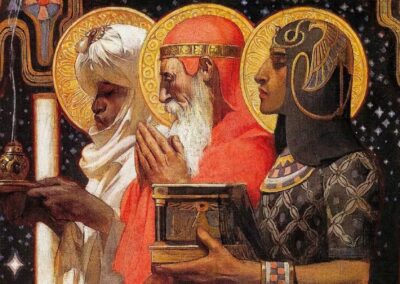
The Star Announces the King
By Rev. Dr. William David Spencer “Yes, I saw it - a strange portent, as if the morning stars had converged on one spot – as if all ...
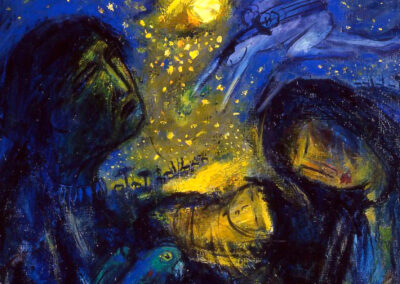
A Carpenter’s Courage–Matthew 1:18-25
Dr. Catherine McDowell This blog post is part two of a four-part Advent series. Read part one here. When the angel of the ...
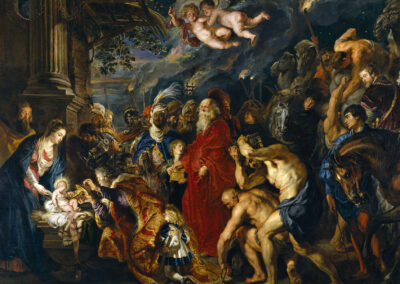
The Astonishing Ascendance of Celebrating Christ’s Birth
Dr. Donald Fairbairn It should come as no surprise that Advent, as a season of preparation for the celebration of Christ’s ...

How a Small Church Can Be a Sending Church
Dr. Stephen Witmer This blog originally appeared on The Gospel Coalition. Jesus entrusts the task of global missions to every ...

What We Do Versus Who We Are: Thoughts on Church Planting
Dr. Erin Crider During my last year of master’s research, I had made my way around a labyrinthine hallway to a tiny office, ...
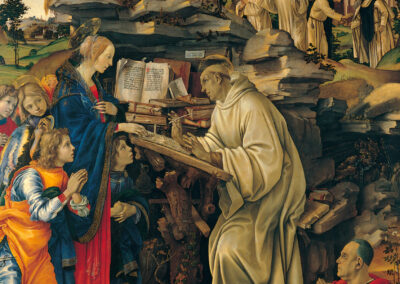
For All the Saints
WENDY MURRAY (MATS ’85) It is appropriate that the celebration of All Saints Day comes directly on the heels of Reformation ...
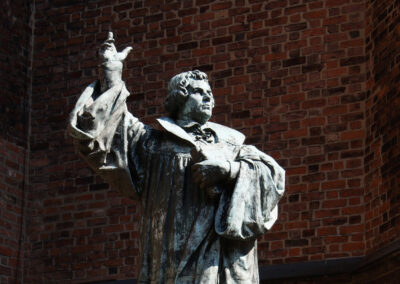
Is The Reformation Worth Celebrating?
Over five hundred years ago an event took place that is easily overlooked by some, but it is one that ought to be remembered and ...

Let Creation Speak
A Theology of Resonance and the Ecological Art of Vincent van Gogh Dr. Wes Vander Lugt I remember the first time I was drawn ...

A Modern-day Latino Saint
Dr. Alvin Padilla Hispanic Heritage Month runs from September 15 to October 15 every year as a time to recognize and celebrate ...

Mental Health or Demonic Influence?
Navigating the Complex Arena of Suicidal Thinking Dr. Karen Mason Professor of Counseling and Psychology, Director of the Hamilton ...
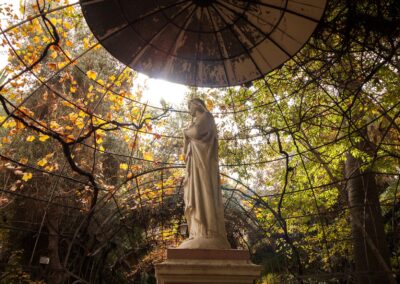
Abiding Fuels Evangelism
Rachel Gilson (MDiv '20) This post originally appeared on The Gospel Coalition. If we want to see our neighbors trust in ...

The Beginning and the End: Enjoying the God-Centeredness of the Bible
Stephen Witmer (MDiv & ThM '03) This article originally appeared on Desiring God. Do you want to know an inside secret ...
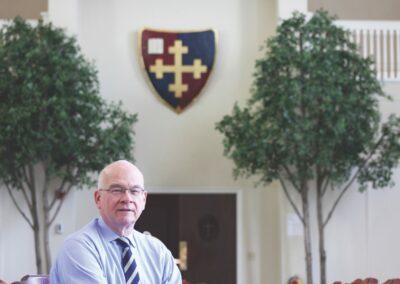
Why I am Grateful for the Life and Ministry of Tim Keller
Dr. Paul Hoffman (MDiv '03) Tim Keller first popped onto my radar in the summer of 2009. A friend of his and Kathy’s, who is a ...

May We Never Lose Sight
Dr. Nicole Martin This blog is an excerpt from an original article published in Christianity Today. God’s Word is full of ...
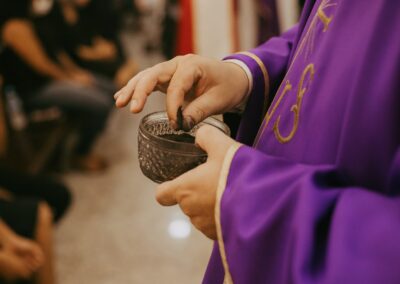
Cleaning Up Our Act
Dr. David Currie (MDiv '84) A few years ago I noticed an article about Ash Wednesday in a Sunday newspaper magazine. It was ...

An Essential Element of Suicide Prevention: Helping Suicidal Christians Feel Safe to Reach Out For Help
Dr. Karen Mason Suicide happens inside the walls of the church. Yet, the wider culture is more engaged in suicide prevention ...
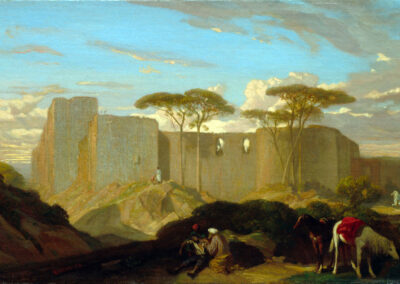
God is the Good Samaritan
Dr. Richard Lints This blog originally appeared in Christianity Today. Part of the task of the church is making the case that ...

Advent Reflection: Our With-ness is Our Witness
Dr. Stephen Macchia (MDiv ’83, DMin '01) This blog originally appeared on Leadership Transformations. “In the beginning was ...

What Too Little Forgiveness Does to Us
Timothy Keller (MDiv '75) This essay originally appeared in The New York Times. Virginia is reeling from two mass shootings in ...

Your Syllabus Saved My Ministry
I don’t expect every Gordon-Conwell syllabi to save a ministry, but I trust that they might.
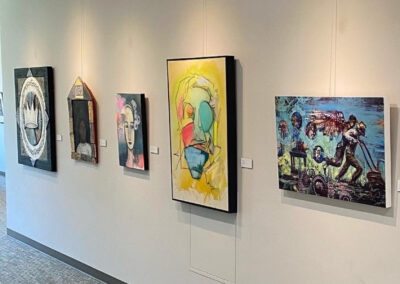
Resonating with Art and the Divine Artist
Dr. Wes Vander Lugt “I don’t like it. I don’t understand it. It just doesn’t do it for me.” If you have ever responded in ...
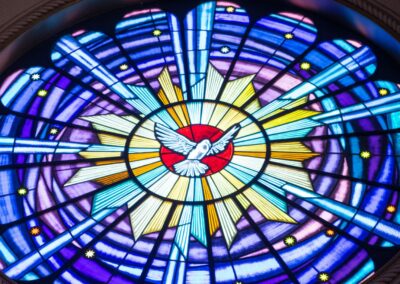
Father, Son and …
Gordon Fee says that Moses’ prayer at Mount Sinai lies at the heart of Paul’s understanding of the Spirit: “If your presence doesn’t go with us … what else will distinguish your people from all other people on the face of the earth?”
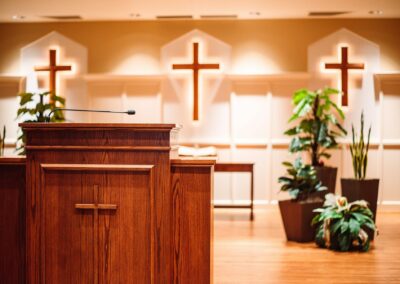
A Man of the Spirit
Yet his “zeal from the pulpit” and his “passion from the Pentecostal message of the Spirit’s presence in this age authenticate him.”

Who is Responsible for Impressing God on a Child?
Dr. Patricia Batten This devotional is part of Discovery Series' Heart, Soul, and Mind: Raising Kids to Know and Love God series by ...

10 Things the Church Can Learn About Missions from Jesus, Peter, and Paul
Dr. Eckhard Schnabel This article originally appeared on The Gospel Coalition. When we read the New Testament to learn about ...

Nurturing a Healthy Mindset in the Midst of Chaos
Far too many of us are soul weary. But let’s remember, together, who we are. We are disciples—we are Christ-learners.
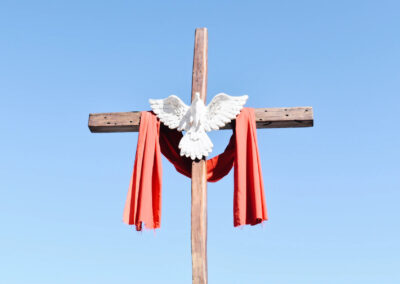
How to Rely on the Holy Spirit in Your Preaching
Dr. Jeffrey Arthurs This blog originally appeared in Ministry Magazine. If you created a checklist for sermon preparation, it ...

Stabilizing Community on Twisting Cultural Roads
The importance of developing intentional learning communities and how that community can be built and flourish in digital and ...

Noticing God in Everything
Bible Gateway interviewed Dr. Stephen Macchia (MDiv '83, DMin '01), Director of Gordon-Conwell’s Pierce Center for Disciple Building, ...
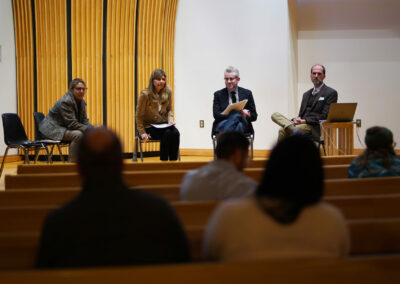
Reflections from The Power of Sabbath Event
On December 2, 2021, the Mockler Center for Faith and Ethics in the Public Square hosted The Power of Sabbath: A Community ...

Beyond Tribalism: Six Principles from 2 Chronicles 30
This blog originally appeared on the Casket Empty website. Dr. Carol Kaminski (MA & MAR '96) I have recently been following ...
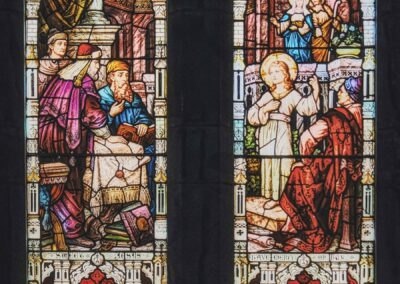
Creeds and Confessions: What’s the Difference?
This article originally appeared on The Gospel Coalition's website. You may belong to a church that calls itself ...

Teología en Conjunto: An Alternative to Christian Celebrity
This Hispanic Heritage Month, may we turn to our Hispanic brothers and sisters and consider what it means to practice teología en conjunto.

Twenty Years Later: Remembering 9/11
Kevin DeYoung (MDiv '02) I was in my final year at Gordon-Conwell. It was a beautiful morning–sunny, deep blue, not a cloud ...
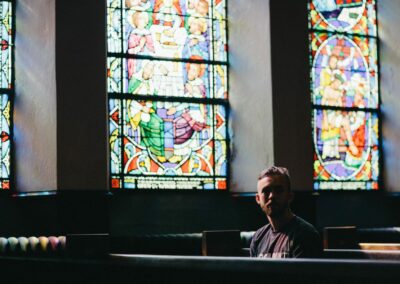
Preventing Suicide by Providing Deep Community
Suicidal Christians are in our communities, and they need our ministry. They need us to provide authentic, non-judgmental deep community.

The Celebration of Rosh HaShanah
Dr. Seong Hyun Park, Assistant Professor of Old Testament and Associate Dean of Cohort-Based Education Core Curriculum & Research, shares insight on the celebration of Rosh HaShanah.
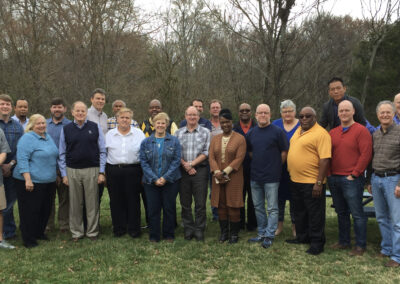
Assigned Seats
What impact did assigned seats and prayer have on one D.Min. Cohort? Read today's blog post to hear the story of two students.
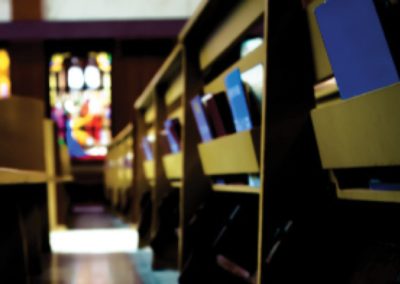
The Shoemaker Center for Church Renewal
The Ockenga Blog series is designed to highlight each of Gordon-Conwell’s centers. This week’s post spotlights the Shoemaker Center ...
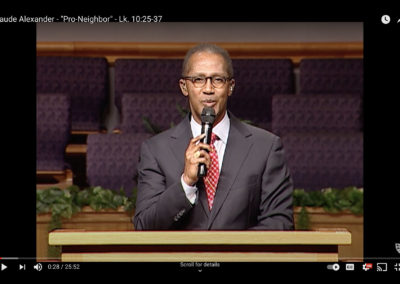
Chapel Message: Pro-Neighbor
Claude Alexander, Chairman of the Board of Trustees and Senior Pastor of The Park Church in Charlotte, NC, delivered this message ...
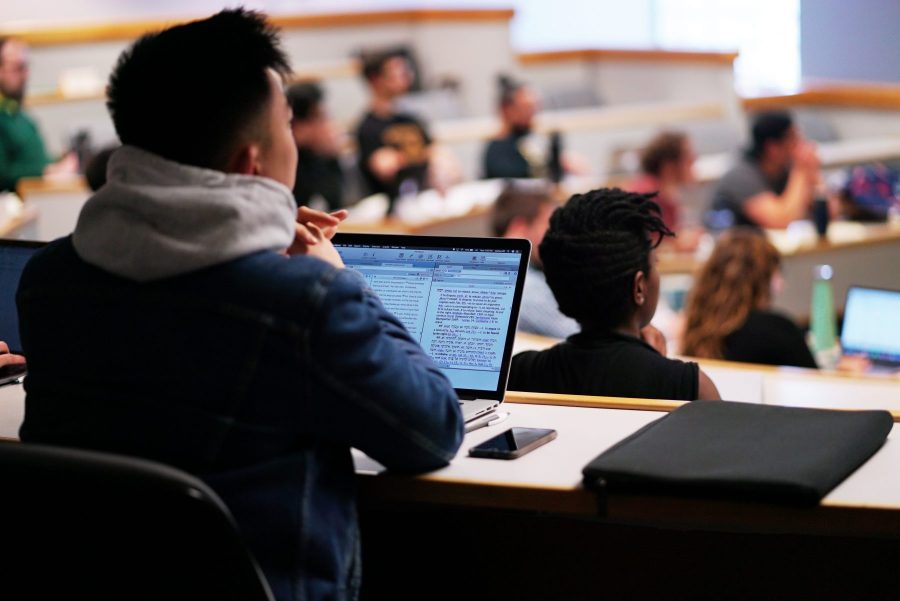
Fulfilling the Mockler Mission in Three Ways
This week’s Ockenga blog post highlights ways in which the Mockler Center pursues its mission and purpose.

The Mockler Center Adopts a New Name
This week’s Ockenga blog post shines the spotlight on the newly renamed Mockler Center for Faith and Ethics in the Public Square.
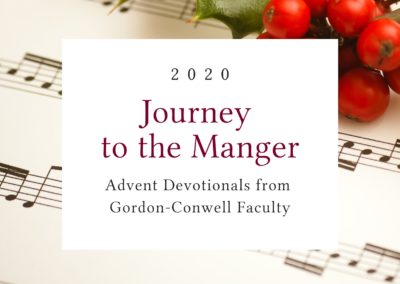
Advent Devotional: “Hark the Herald Angels Sing”
What a joy to sing such profound, engaging, and deep theology in a hymn like “Hark the Herald Angels Sing.” Let’s walk through it together.

Advent Devotional: “O Come, O Come Emmanuel”
One Advent carol that embodies how the people of God have waited patiently, expectantly, and hopefully is “Savior of the Nations, Come.”

Advent Devotional: “Once in Royal David’s City”
"Once in Royal David’s City" is a beautiful Christmas hymn that brings out one of the central features of the story of Jesus in the Gospels.

Advent Devotional: “Angels We Have Heard on High”
Wonder is surprise mixed with admiration. It is a feeling, one that often leads us to further investigation.

Advent Devotional: “Savior of the Nations, Come”
One Advent carol that embodies how the people of God have waited patiently, expectantly, and hopefully is “Savior of the Nations, Come.”

Advent Devotional: “Go Tell it on the Mountain”
“Go Tell it in the Mountain” is a Christmas song that doesn’t have European origins. It was passed orally from one plantation to the other.

Advent Devotional: “Bring a Torch, Jeannette, Isabelle”
The carol “Bring a Torch, Jeannette, Isabelle” became a “carol” in the 1600s when the lyrics were set to new music.
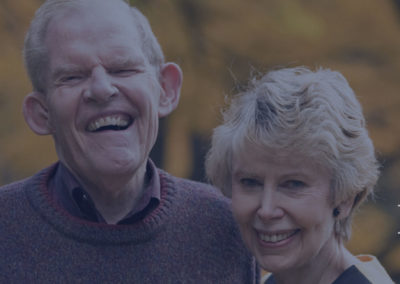
The Haddon W. Robinson Center for Preaching
Like many parishioners, this question (or its more non-committal cousin, "Who was Jesus?") makes seasonal appearances at Christmas and Easter, usually on the covers of news magazines looking for a holiday angle.

Hope in Darkness for Pastors
This is the second blog post in a series about the book release of Preaching Hope in Darkness: Help for Pastors in Addressing Suicide from the Pulpit.
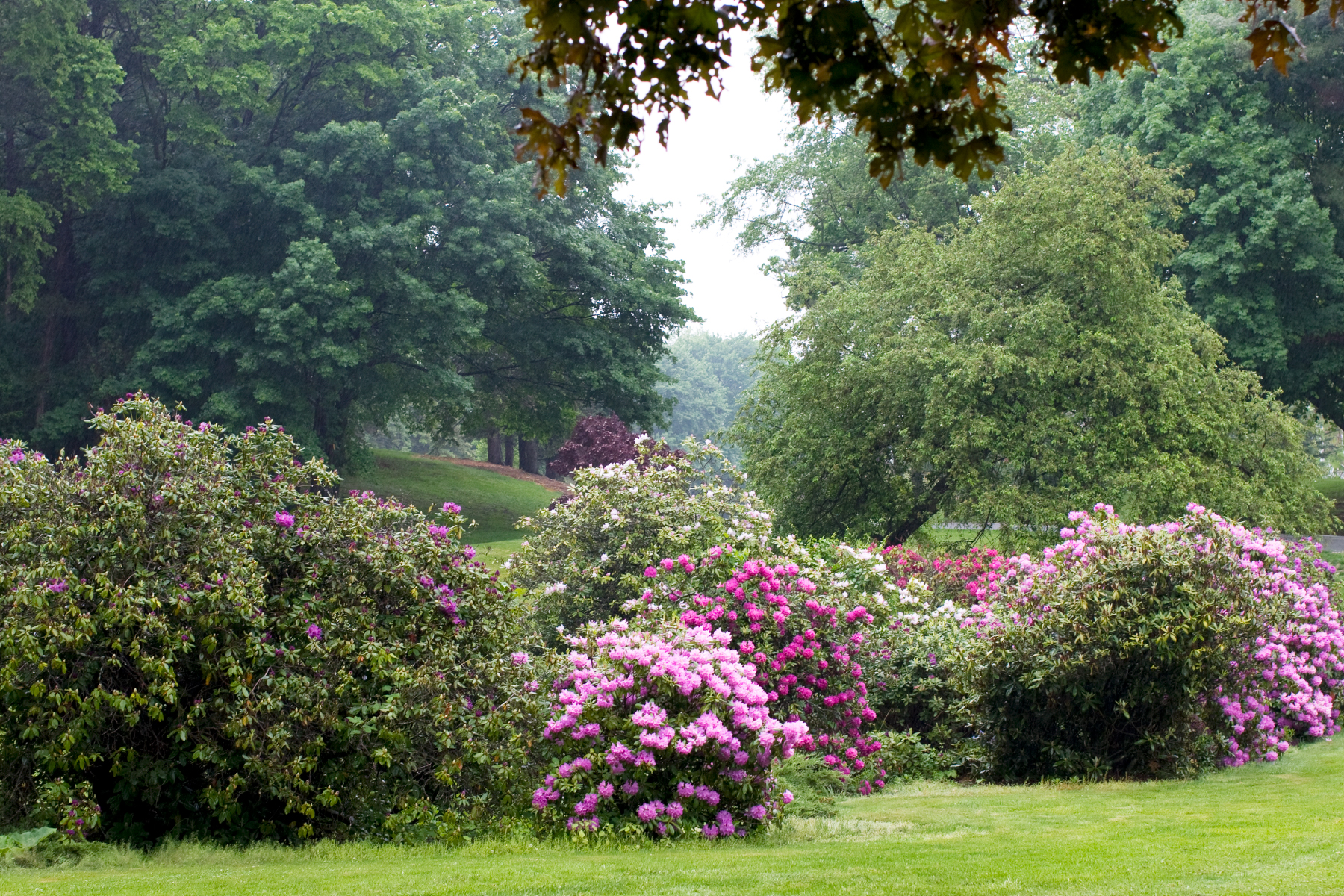
Announcing the New Global Scholars and Practitioners in Residence Program
Read today's blog for an exciting sneak peek at an upcoming initiative from the Wilson Center for World Missions.
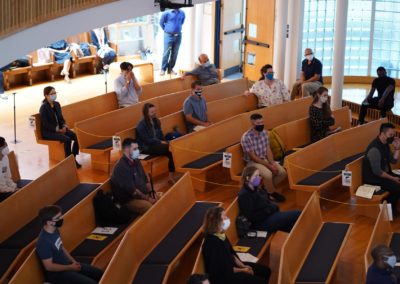
Celebrating Anglican Week at Gordon-Conwell
The Office of the Chapel invites our community to two chapel services to learn more about the Anglican worship tradition on November 17 and 18 at 11:10 a.m.
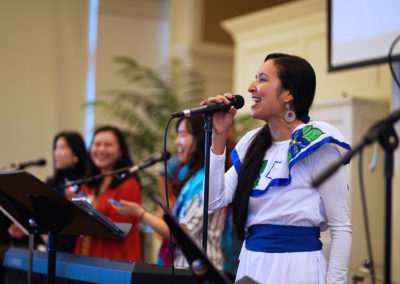
The J. Christy Wilson Jr. Center for World Missions
Like many parishioners, this question (or its more non-committal cousin, "Who was Jesus?") makes seasonal appearances at Christmas and Easter, usually on the covers of news magazines looking for a holiday angle.
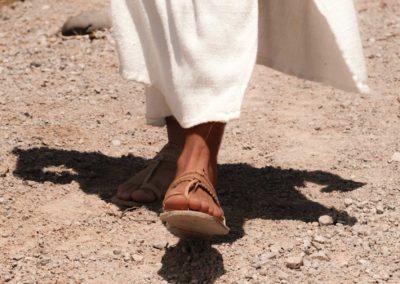
Who Is This Man?
Like many parishioners, this question (or its more non-committal cousin, "Who was Jesus?") makes seasonal appearances at Christmas and Easter, usually on the covers of news magazines looking for a holiday angle.

Five Ways a Church Can Observe National Suicide Prevention Month
Learn more about how hard-working followers of Christ can pour into others without draining themselves.

Don’t Give Away What’s Meant for You
Learn more about how hard-working followers of Christ can pour into others without draining themselves.

The Unexpected Death
Holy Saturday Devotional - If we see this story through to its end, we discover hope at the point of greatest despair.
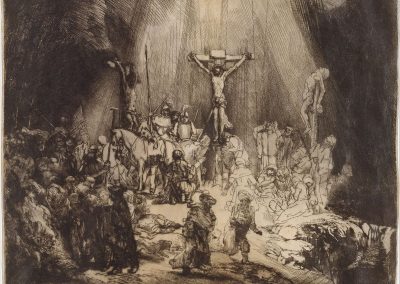
Not the Way the Story Ends
Good Friday Devotional - On this day, we remember that terrible Friday… because of what will happen on Sunday, we call this Friday “good.”

Symbols of the Suffering Servant: This Cup
Maundy Thursday Devotional - Jesus drank the cup of separation for us, so we don’t have to.

Helping Children Cope Through a Pandemic
The COVID-19 pandemic is challenging us all to establish new ways of coping. Parents and caregivers can play an important role in helping children cope during this pandemic.
Ayudando a Los Niños a Sobrellevar Una Pandemia
Los padres y cuidadores pueden desempeñar un papel importante para ayudar a los niños a sobrellevar esta pandemia.

Anxiety and the Financial Crisis
On the 6th day of Lent, we celebrated the calling of the first disciples. Matthew 4:18-22 captures the moment beautifully. “While ...
Discipleship, Intentionality and Community
“And he went up on the mountain and called to him those whom he desired, and they came to him. And he appointed twelve (whom he also named apostles) so that they might be with him and he might send them out to preach and have authority to cast out demons.” (Mark 3:13–15 ESV)
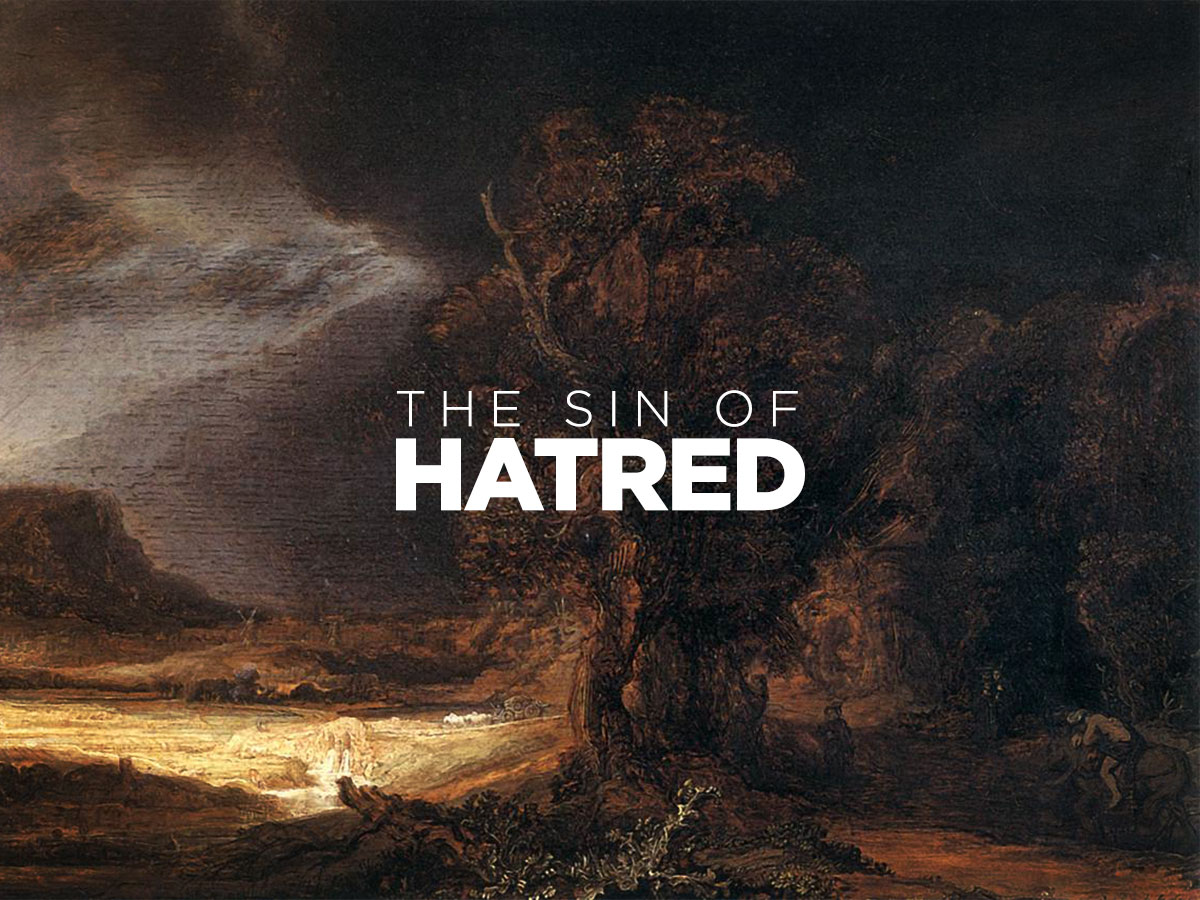
The Sin of Hatred
Dennis Hollinger, Ph.D. President & Coleman M. Mockler Distinguished Professor of Christian Ethics Hatred is a sin against God ...
After Santa Fe: Talking to Your Child about Tragedy
Dr. Karen Mason Associate Professor of Counseling and Psychology The Santa Fe school shooting brings home, yet again, the violent ...
National Tragedy and Self-Care
Dr. Jacqueline Dyer Director, MA in Counseling Program, Boston Campus When Santa Fe High School students and teachers went to ...
Reasons to Live — Part 5: Become the Beacon of Hope to Those Who Have No Hope
Reasons to Live: Become the Beacon of Hope to Those Who Have No Hope Karen Mason, Ph.D., Associate Professor of Counseling and ...
Reasons to Live — Part 4: The Gospel and Our Faith in Christ Offer Hope
Reasons to Live: The Gospel and Our Faith in Christ Offer Hope Karen Mason, Ph.D., Associate Professor of Counseling and ...
Reasons to Live — Part 3: The Hope of Christ
Reasons to Live: The Hope of Christ Karen Mason, Ph.D., Associate Professor of Counseling and Psychology, Gordon-Conwell ...
Reasons to Live — Part 2
Reasons to Live: Episode 2 Karen Mason, Ph.D., Associate Professor of Counseling and Psychology, Gordon-Conwell Theological ...
Reasons to Live — Part 1: Discover How Hope Can Help Alleviate Despair
Reasons to Live: Discover How Hope Can Help Alleviate Despair Karen Mason, Ph.D., Associate Professor of Counseling and ...
A Tribute to Billy Graham
A Tribute to Billy Graham Dr. Garth M. Rosell, Senior Research Professor of Church History It is difficult to imagine a world ...
Gordon-Conwell’s Long-Standing Position on Women and Ministry Preparation
Dennis Hollinger, Ph.D. President & Coleman M. Mockler Distinguished Professor of Christian Ethics (more…)
Racial Reconciliation Series: Can We All Get Along?
As part of the release of fall 2017 edition of Contact Magazine, the Office Hours Faculty Blog is proud to present the concluding ...
Racial Reconciliation Series: My Personal Experience
As part of the release of fall 2017 edition of Contact Magazine, the Office Hours Faculty Blog is proud to present a 6-week series on ...
Racial Reconciliation Series: How do we Learn to Love our Neighbor?
As part of the release of fall 2017 edition of Contact Magazine, the Office Hours Faculty Blog is proud to present a 6-week series on ...
Racial Reconciliation Series: Ministering to Families in the Urban Context
As part of the release of fall 2017 edition of Contact Magazine, the Office Hours Faculty Blog is proud to present a 6-week series on ...
Racial Reconciliation Series: Beyond Colorblind
As part of the release of fall 2017 edition of Contact Magazine, the Office Hours Faculty Blog is proud to present a 6-week series on ...
Racial Reconciliation Series: A Conversation with Dr. Emmett G. Price III
As part of the release of fall 2017 edition of Contact Magazine, the Office Hours Faculty Blog is proud to present a 6-week series on ...
Drs. Hollinger and Mason testify on House Bill 119A, relative to end of life options
On Tuesday, Sept. 26, Dennis Hollinger, Ph.D. , President & Colman M. Mockler Distinguished Professor of Christian Ethics and Dr. ...
A Pre-Release Excerpt from Dr. Kim’s Book on the Need for Preaching with Cultural Intelligence
(more…)
Gordon-Conwell Prays for Jacksonville Campus as Well as Hurricane and Flood Victims Around the World
A Message from President Hollinger Whenever there are natural disasters around the world we are reminded again that our ...
How Christians Can Respond to the Disruption of Natural Order
Dr. Sean McDonough Professor of New Testament, Gordon-Conwell “Things fall apart; the centre cannot hold…” -- William Butler ...
Gordon-Conwell is a Praying Community: Prayer for Global Flood Victims
A Message from President Hollinger President & Colman M. Mockler Distinguished Professor of Christian Ethics Our hearts are ...
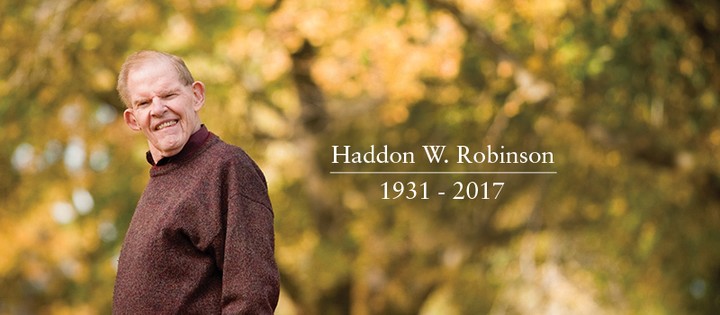
Remembering Haddon Robinson
Dr. Haddon W. Robinson, longtime faculty member, former President of Gordon-Conwell Theological Seminary and one of the world’s ...
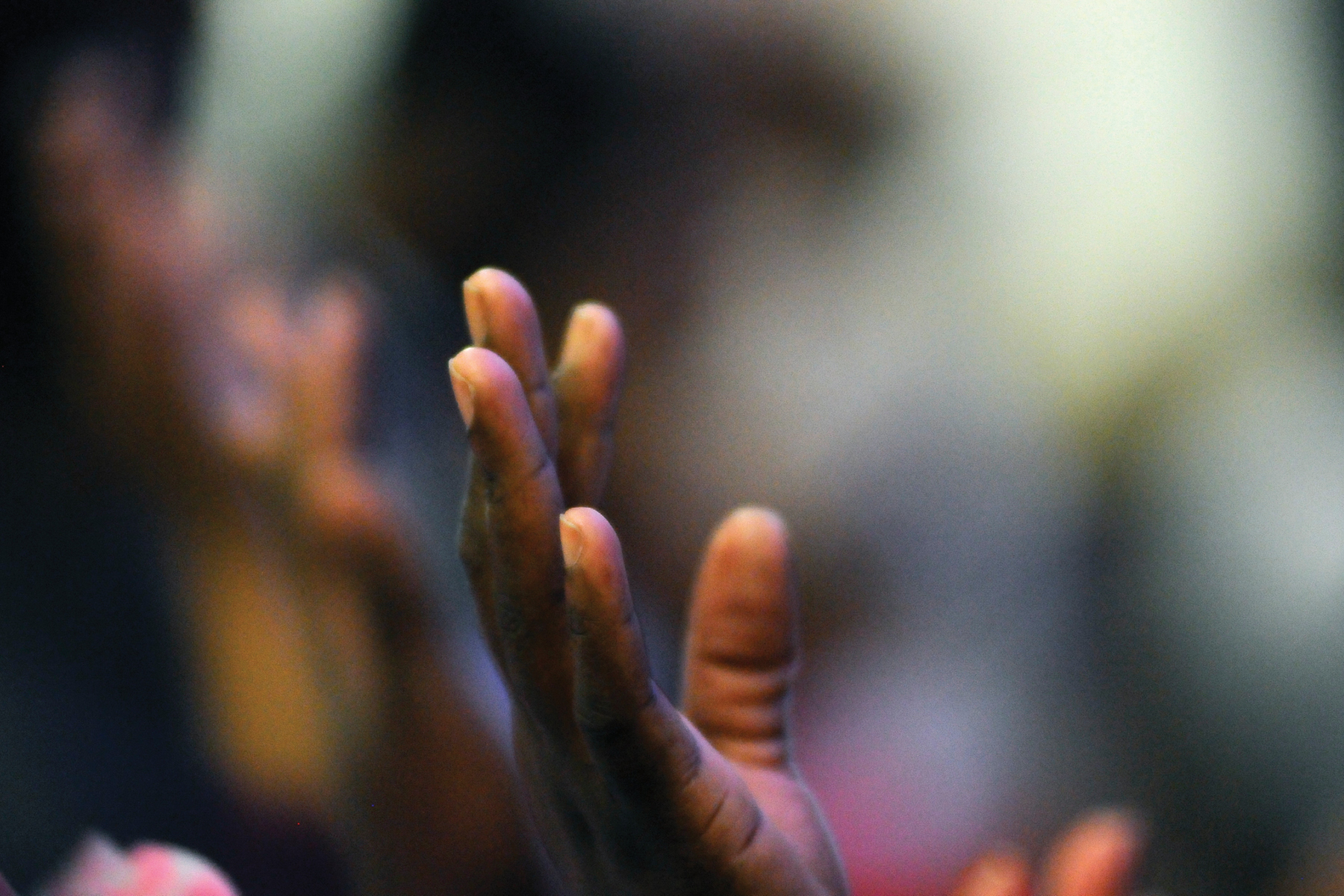
Racism & Hatred: Gordon-Conwell Grieves with the Heart of God
Dennis P. Hollinger, Ph.D. President & Coleman M. Mockler Distinguished Professor of Christian Ethics Gordon-Conwell ...

Racism & Hatred
Rev. Emmett G. Price III, Ph.D, ISBCE Executive Director: Dean of Chapel; Professor of Worship, Church & Culture The Institute ...
Remembering the Legacy of Our Friend and Mentor, Dr. Haddon W. Robinson
Dennis Hollinger, Ph.D. President & Coleman M. Mockler Distinguished Professor of Christian Ethics Haddon Robinson was not ...
13 Reasons Why: A Gordon-Conwell Professor’s Response
A family and church response to 13 Reasons Why (TV Series 2017; creator: Brian Yorkey) Karen Mason, Ph.D. Associate Professor of ...
Where No One Has Heard: J. Christy Wilson Jr’s Enduring Missions Legacy
Ken Wilson, (MATS '84) This blog is adapted from the biography of Christy Wilson, Where No One Has Heard, published in 2016 ...
Discipleship: Learning Before the King’s Throne
James R. Critchlow Ranked Adjunct Assistant Professor in Old Testament (more…)
The Whole World Isn’t Watching
Sean McDonough Professor of New Testament (more…)
The Wisdom of the Gospel in the Partisan Public Square
Richard Lints, Ph.D. Vice President for Academic Affairs, Dean of the Hamilton Campus; Andrew Mutch Professor of Theology It is ...
Opening The Word
Dr. Edward M. Keazirian, Th.D. Assistant Professor of Greek and Director of the Greek Language Program "After fasting forty ...
To Live in Justice: The Message of Amos For Today
Eldin Villafane, Ph.D. Senior Professor of Social Ethics If there is one book in the Bible that speaks insightfully and relevantly ...
Politics and Christian Faith in an Election Year
Dennis Hollinger, Ph.D. President & Colman M. Mockler, Distinguished Professor of Christian Ethics The relationship of ...

Domestic Violence In The Church
Anne B. Doll Senior Communications Advisor Approximately one in four women worldwide has suffered physical abuse by an intimate ...
The Cost of Following Jesus
Anne B. Doll Senior Communications Advisor (more…)
When The Pastor Suffers From Depression
Raymond Pendleton, Ph.D. Director of the Clinical Counseling Program, Professor of Pastoral Care and Counseling Recently, I had ...
How to Make Ethical Decisions in a Complex World
Dr. Patrick T. Smith Associate Professor of Theology and Philosophy (more…)
Jesus and Discipleship: The View from the Great Commission
Roy E. Ciampa, Ph.D. Professor of New Testament (more…)
True Hope You Can Take to the Bank
Dr. Edward Keazirian Assistant Professor of Greek and Director of the Greek Language Program (more…)
The Role of Theology in the Life of the Church
Dr. John Jefferson Davis Chair of the Division of Christian Thought, Professor of Systematic Theology and Christian Ethics ...
Joy In A Prison Cell
Roy E. Ciampa, Ph.D. Professor of New Testament, Chair of the Division of Biblical Studies, Director of the Th.M. program in ...
The Call At 2AM: Caring for Devastated Parishoners
Kenneth Swetland, D.Min. Professor of Ministry and Campus Pastoral Counselor (more…)
Is Jesus Really the Only Way to God?
Dennis Hollinger, Ph.D. President & Colman M. Mockler Distinguished Professor of Christian Ethics (more…)
Made by a Maker to be a Maker
Bruce Herman, MFA Lothlórien Distinguished Chair in the Fine Arts, Department Chair, and a professor of painting and drawing at ...
Deconstructing Jesus: Separating Fact from Fiction
Rollin Grams, Ph.D. Associate Professor of New Testament These are exciting days in Jesus studies. Much is being written on the ...
Pastoral Burnout: A More Common Problem Than You Might Think
Kenneth L. Swetland, Ph.D. Senior Professor of Ministry While burnout is not a common experience of pastors (although some ...
Our Creative God
Tim Laniak, Ph.D. Professor of Old Testament and former Dean of the Charlotte Campus Let me begin this brief (and therefore ...
Weep with Those Who Weep
Dennis Hollinger, Ph.D. President & Colman M. Mockler Distinguished Professor of Christian Ethics (more…)
Terrorism Through the Eyes of Faith
Dennis Hollinger, Ph.D. President & Colman M. Mockler Distinguished Professor of Christian Ethics (more…)
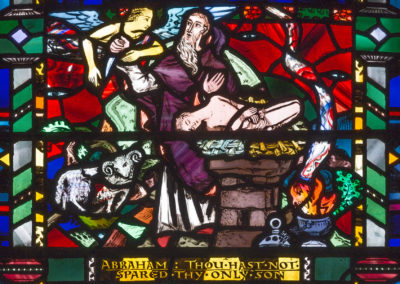
Jesus in the Old Testament
It is only right that we should find that Jesus was both actually present in the Old Testament and accurately predicted, and that he would come first as our Savior, and then in a later second coming, would appear as the King supreme over all the earth.
